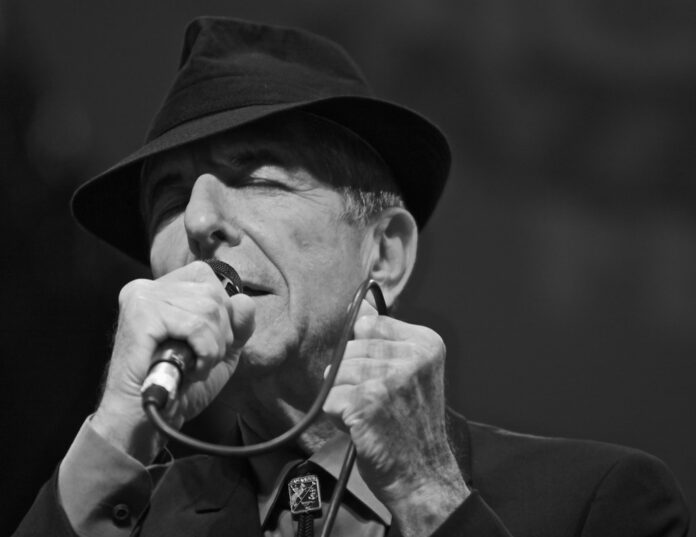The music and poetry of Leonard Cohen is a comprehensive and profound look at life
By ANGIE CUMMINGS — arts@theaggie.org
“Experience Leonard Cohen” at the Contemporary Jewish Museum (CJM) in San Francisco is a beautiful tribute to one of the most influential and profound singer-songwriters of the past 60 or so years. It was also an immersive and unique experience in and of itself, made up of two different installations united by their clear expression of Cohen’s long-lasting legacy and reverence for the people who keep his work alive.
If you are not familiar with Cohen’s written work, you are sure to know his most famous song that so perfectly exemplifies his treatment (and mixing) of faith, love, death, sex and identity: “Hallelujah” (1984). This song has been covered thousands of times and has been featured in countless movies and TV shows (most notably in “Shrek,” sung by Rufus Wainwright), but the original, as so often is the case, continues to reign supreme.
Cohen started out as a poet and didn’t stray from his original artform as his career as a singer-songwriter started to take off. All of his songs can easily be seen as melodic spoken word poetry, and this is what makes his work so accessible. You don’t need an English degree to know what Cohen is conveying in his lyrics, and yet they are still just as powerful as any hard-to-dissect Shakespearean sonnet.
I have a deep admiration for Cohen’s often solemn, yet never nihilistic body of work. The first poem I ever heard by Cohen was “Democracy” (1992), which was coincidentally the first time I ever believed I could like poetry. Like in much of his work, there is nothing to really decode in “Democracy”; even from the title it’s clear what you’re getting into, showing us that the world around us does not need to be abstracted in order to understand it any deeper. Just as all his love songs/poems can be universally appreciated, his writing about the world around him is just as pertinent today as it was 30 years ago.
Cohen passed away at the age of 82 in 2016, and his last album “Thanks for the Dance” was released posthumously in 2019. This and his prior works continue to speak to listeners and readers around the world.
Heading up the short stairs to the CJM exhibit, you’re greeted by a lifesize black and white poster of Cohen in his typical suit, coat and wide-brimmed hat, gazing up as if he was going along with you into the exhibit. You first turn into the composer and archivist Marshall Trammell’s residence in the small yet architecturally impressive “Yud” gallery room. The entire concept of this continually changing and community-based audio installation is incredible (with a full description in the link above); however, simply sitting at its center and hearing voices of past museum visitors sing and speak Cohen’s lyrics moving across the walls and ceiling of the room in complex patterns fills one with awe for both the poetry heard and the beauty of a community being brought together through it.
The next show, titled “I’m Your Man” after Cohen’s 1988 album, by Candice Breitz is still rooted in the power of Cohen’s sound, but makes use of video recordings in two otherwise completely dark rooms. Even while watching the fragmented vocals from the professional chorus on the large central screen of the first room, traces and echoes of the next room’s much less controlled singing beckons you deeper into the exhibit. Both rooms are full of men singing the entirety of Cohen’s album; in the first, we have a group of young men singing the backing vocals, while the second presents us with impassioned renditions of Cohen’s songs by 18 life-long fans. Being serenaded by these far-past-middle-aged men, some of them even tearing up as they sing and others dancing along to the tune (that we cannot hear) is sure to bring a smile to anyone’s face. After sitting in both of these rooms, listening to the combined recordings of this multi-generational art piece, we are reminded of the timelessness of Cohen’s work and sound.
The exhibition is open through Feb. 13, and even though two parts of the whole experience closed at the beginning of this month, it is still entirely worthwhile for anyone to go visit, regardless of your Leonard Cohen knowledge. The museum is open Thursday-Sunday and tickets are only $7 with a valid student ID, with a free Friday coming up on Feb. 4.
Correction: A previous version of this article incorrectly stated that Leonard Cohen passed away at age 62. The article has been updated to reflect the correct age of death.




